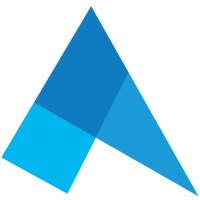
Ardent Health Company Cyber Security Posture
ardenthealth.comArdent Health is a leading provider of healthcare in communities across the country. With a focus on consumer-friendly processes and investments in innovative services and technologies, Ardent is passionate about making healthcare better and easier to access. Through its subsidiaries, Ardent owns and operates 30 hospitals and 200+ sites of care with more than 1,700 aligned providers in six states. Ardent includes: • 30 hospitals • 200+ sites of care • 23,000+ team members • 8,000+ nurses • 1,700+ aligned providers • $5 billion+ annual revenue
Ardent Health Company Details
ardent-health-services
13124 employees
48871.0
62
Hospitals and Health Care
ardenthealth.com
122
ARD_1999101
In-progress
Between 900 and 1000
This score is AI-generated and less favored by cyber insurers, who prefer the TPRM score.
 Ardent Health Global Score
Ardent Health Global Score.png)

Ardent Health Company Scoring based on AI Models
| Model Name | Date | Description | Current Score Difference | Score |
|---|---|---|---|---|
| AVERAGE-Industry | 03-12-2025 | This score represents the average cybersecurity rating of companies already scanned within the same industry. It provides a benchmark to compare an individual company's security posture against its industry peers. | N/A | Between 900 and 1000 |
Ardent Health Company Cyber Security News & History
| Entity | Type | Severity | Impact | Seen | Url ID | Details | View |
|---|---|---|---|---|---|---|---|
| BSA Health System | Breach | 100 | 5 | 11/2023 | BSA2396224 | Link | |
Rankiteo Explanation : Attack threatening the organization’s existenceDescription: BSA Health Systems, located in Amarillo, Texas, declared that it was made aware of a possible security breach that resulted in a network outage on Thanksgiving. News sources state that hospitals owned by Ardent in east Texas, Oklahoma, Kansas, and Idaho are impacted by the outage. Hospitals in New Mexico and New Jersey are also owned by the business. Ambulances in such states may be diverted by emergency departments, although that is still unknown. | |||||||
| UT Health East Texas | Breach | 100 | 5 | 11/2023 | UTH71515224 | Link | |
Rankiteo Explanation : Attack threatening the organization’s existenceDescription: A possible cyber security breach has prevented a network of hospitals in East Texas from accepting ambulances to emergency departments since Thanksgiving Day. While the hospital looks into a possible security attack and attempts to get computers back online, the UT Health East Texas hospital network is working according to established downtime procedures. Although it's uncertain if that will happen, the hospital network initially stated that it anticipated computer networks to be restored in the following 24 to 36 hours. | |||||||
| Ardent Health Services | Ransomware | 75 | 2 | 12/2023 | ARD2306224 | Link | |
Rankiteo Explanation : Attack limited on finance or reputationDescription: Cybercriminals' attack on a significant U.S. health system during Thanksgiving week most certainly wasn't accidental. Following the discovery of what it later determined to be a ransomware attack, Ardent Health Services, a 30-hospital system, decided to take its IT systems offline. There were hospital disruptions in Texas, Kansas, Oklahoma, New Jersey, New Mexico, and Idaho. An Ardent representative informed the news outlet that after detecting the ransomware, the health system had discovered an abnormality and had called in more outside cybersecurity specialists to look into it. | |||||||
| Lovelace Health System | Ransomware | 85 | 3 | 11/2023 | LOV7215224 | Link | |
Rankiteo Explanation : Attack with significant impact with internal employee data leaksDescription: The ransomware assault affected Ardent Health Services, Lovelace's parent business, and its hospitals across the country. They therefore moved a large portion of their network, including user access, business services, the internet, and clinical programmes, offline. Emergency care was moved to other hospitals like Presbyterian and UNMH when Lovelace was initially informed of the attack. Lovelace's urgent care centre and emergency department are back in operation, and patients can resume their outpatient physical therapy and rehabilitation sessions. | |||||||
Ardent Health Company Subsidiaries

Ardent Health is a leading provider of healthcare in communities across the country. With a focus on consumer-friendly processes and investments in innovative services and technologies, Ardent is passionate about making healthcare better and easier to access. Through its subsidiaries, Ardent owns and operates 30 hospitals and 200+ sites of care with more than 1,700 aligned providers in six states. Ardent includes: • 30 hospitals • 200+ sites of care • 23,000+ team members • 8,000+ nurses • 1,700+ aligned providers • $5 billion+ annual revenue
Access Data Using Our API

Get company history
.png)
Ardent Health Cyber Security News
UPDATE: Ardent Health restores access to Epic EHR two weeks after ransomware attack
Ardent Health Services restored access to its Epic EHR system two weeks after it was hit with a ransomware attack.
Ardent Health Services Ransomware Attack Affects Hospitals in Multiple States
The attack has resulted in emergency rooms being placed on divert, with new emergency patients redirected to alternate healthcare facilities.
Ardent Health Services Reports Information Technology Security Incident
Ardent Health Services is a leading provider of healthcare in communities across the country. With a focus on consumer-friendly processes and ...
Ransomware attack disrupts operations at Ardent Health Services
The incident has resulted in a temporary disruption to certain aspects of Ardent's clinical and financial operations, the health system said.
Ardent Health Services Files Notice of Data Breach in the Wake of Ransomware Attack
On January 24, 2024, Ardent Health Services sent out data breach letters to anyone who was affected by the recent data security incident. These ...
Ardent ransomware attack leads ERs to divert patients in at least 3 states
Hospitals in at least three states are diverting patients from their emergency rooms after a major cyberattack hit their parent company last ...
Another hospital cyberattack highlights security weaknesses
Ardent Health was hit by a hospital cyberattack on Thanksgiving Day, a reminder that digital transformation in the sector isn't complete.
Ardent Health Services Hospitals Hit by Ransomware Attack
Ardent Health Services announced that it suffered a ransomware attack on the morning of Nov. 23, 2023. Nashville-based Ardent said it ...
Ransomware attack disrupts multiple US hospital ERs | Cyber Security Hub
US healthcare provider Ardent Health Services is facing disruption to clinical and financial operations at six locations following a ...

Ardent Health Similar Companies

Memorial Hermann Health System
Advancing Health. Personalizing Care. Memorial Hermann Health System is a nonprofit, values-driven, community-owned health system dedicated to improving health. A fully integrated health system with more than 260 care delivery sites throughout the Greater Houston area, Memorial Hermann is committe

Sienna Senior Living
At Sienna Senior Living, our Purpose is to cultivate happiness in daily life. Our work does not stop at providing the highest quality of service and care to our residents - it goes much further. Each and every day, we strive to bring happiness into our residents’ lives by enabling our team to put

Region Skåne
Region Skåne, or Skåne Regional Council, is the self-governing authority of Skåne, the southernmost county of Sweden. Region Skåne has its head office in the city of Kristianstad and has work places in every municipality in Skåne. Region Skåne is responsible for healthcare and medical services, t

Health Service Executive
Our purpose is to provide safe, high quality health and personal social services to the population of Ireland. Our vision is a healthier Ireland with a high quality health service valued by all. Our Workforce The health service is the largest employer in the state with over 110,000 whole time equ

Ramsay Santé
After the acquisition of the Capio Group in 2018, Ramsay Santé has become Europe's leading private hospital and primary care companies. The group now has 36,000 employees and works with nearly 8,600 private practitioners. Present in 5 countries, France, Sweden, Norway, Denmark and Italy, the group

UCLA Health
For more than half a century, UCLA Health has provided the best in healthcare and the latest in medical technology to the people of Los Angeles and throughout the world. Comprised of Ronald Reagan UCLA Medical Center, UCLA Medical Center Santa Monica, Resnick Neuropsychiatric Hospital at UCLA, UCLA

Frequently Asked Questions (FAQ) on Cybersecurity Incidents
Ardent Health CyberSecurity History Information
Total Incidents: According to Rankiteo, Ardent Health has faced 4 incidents in the past.
Incident Types: The types of cybersecurity incidents that have occurred include ['Breach', 'Ransomware'].
Total Financial Loss: The total financial loss from these incidents is estimated to be {total_financial_loss}.
Cybersecurity Posture: The company's overall cybersecurity posture is described as Ardent Health is a leading provider of healthcare in communities across the country. With a focus on consumer-friendly processes and investments in innovative services and technologies, Ardent is passionate about making healthcare better and easier to access. Through its subsidiaries, Ardent owns and operates 30 hospitals and 200+ sites of care with more than 1,700 aligned providers in six states. Ardent includes: • 30 hospitals • 200+ sites of care • 23,000+ team members • 8,000+ nurses • 1,700+ aligned providers • $5 billion+ annual revenue.
Detection and Response: The company detects and responds to cybersecurity incidents through {description_of_detection_and_response_process}.
Incident Details
Incident 1: Ransomware Attack
Title: {Incident_Title}
Description: {Brief_description_of_the_incident}
Date Detected: {Detection_Date}
Date Publicly Disclosed: {Disclosure_Date}
Date Resolved: {Resolution_Date}
Type: {Type_of_Attack}
Attack Vector: {Attack_Vector}
Vulnerability Exploited: {Vulnerability}
Threat Actor: {Threat_Actor}
Motivation: {Motivation}
Incident 2: Data Breach
Title: {Incident_Title}
Description: {Brief_description_of_the_incident}
Date Detected: {Detection_Date}
Date Publicly Disclosed: {Disclosure_Date}
Date Resolved: {Resolution_Date}
Type: {Type_of_Attack}
Attack Vector: {Attack_Vector}
Vulnerability Exploited: {Vulnerability}
Threat Actor: {Threat_Actor}
Motivation: {Motivation}
Common Attack Types: The most common types of attacks the company has faced are ['Breach', 'Ransomware'].
Identification of Attack Vectors: The company identifies the attack vectors used in incidents through {description_of_identification_process}.
Impact of the Incidents
Incident 1: Ransomware Attack
Financial Loss: {Financial_Loss}
Data Compromised: {Data_Compromised}
Systems Affected: {Systems_Affected}
Downtime: {Downtime}
Operational Impact: {Operational_Impact}
Conversion Rate Impact: {Conversion_Rate_Impact}
Revenue Loss: {Revenue_Loss}
Customer Complaints: {Customer_Complaints}
Brand Reputation Impact: {Brand_Reputation_Impact}
Legal Liabilities: {Legal_Liabilities}
Identity Theft Risk: {Identity_Theft_Risk}
Payment Information Risk: {Payment_Information_Risk}
Incident 2: Data Breach
Financial Loss: {Financial_Loss}
Data Compromised: {Data_Compromised}
Systems Affected: {Systems_Affected}
Downtime: {Downtime}
Operational Impact: {Operational_Impact}
Conversion Rate Impact: {Conversion_Rate_Impact}
Revenue Loss: {Revenue_Loss}
Customer Complaints: {Customer_Complaints}
Brand Reputation Impact: {Brand_Reputation_Impact}
Legal Liabilities: {Legal_Liabilities}
Identity Theft Risk: {Identity_Theft_Risk}
Payment Information Risk: {Payment_Information_Risk}
Average Financial Loss: The average financial loss per incident is {average_financial_loss}.
Commonly Compromised Data Types: The types of data most commonly compromised in incidents are {list_of_commonly_compromised_data_types}.
Incident 1: Ransomware Attack
Entity Name: {Entity_Name}
Entity Type: {Entity_Type}
Industry: {Industry}
Location: {Location}
Size: {Size}
Customers Affected: {Customers_Affected}
Incident 2: Data Breach
Entity Name: {Entity_Name}
Entity Type: {Entity_Type}
Industry: {Industry}
Location: {Location}
Size: {Size}
Customers Affected: {Customers_Affected}
Response to the Incidents
Incident 1: Ransomware Attack
Incident Response Plan Activated: {Yes/No}
Third Party Assistance: {Yes/No}
Law Enforcement Notified: {Yes/No}
Containment Measures: {Containment_Measures}
Remediation Measures: {Remediation_Measures}
Recovery Measures: {Recovery_Measures}
Communication Strategy: {Communication_Strategy}
Adaptive Behavioral WAF: {Adaptive_Behavioral_WAF}
On-Demand Scrubbing Services: {On_Demand_Scrubbing_Services}
Network Segmentation: {Network_Segmentation}
Enhanced Monitoring: {Enhanced_Monitoring}
Incident 2: Data Breach
Incident Response Plan Activated: {Yes/No}
Third Party Assistance: {Yes/No}
Law Enforcement Notified: {Yes/No}
Containment Measures: {Containment_Measures}
Remediation Measures: {Remediation_Measures}
Recovery Measures: {Recovery_Measures}
Communication Strategy: {Communication_Strategy}
Adaptive Behavioral WAF: {Adaptive_Behavioral_WAF}
On-Demand Scrubbing Services: {On_Demand_Scrubbing_Services}
Network Segmentation: {Network_Segmentation}
Enhanced Monitoring: {Enhanced_Monitoring}
Incident Response Plan: The company's incident response plan is described as {description_of_incident_response_plan}.
Third-Party Assistance: The company involves third-party assistance in incident response through {description_of_third_party_involvement}.
Data Breach Information
Incident 2: Data Breach
Type of Data Compromised: {Type_of_Data}
Number of Records Exposed: {Number_of_Records}
Sensitivity of Data: {Sensitivity_of_Data}
Data Exfiltration: {Yes/No}
Data Encryption: {Yes/No}
File Types Exposed: {File_Types}
Personally Identifiable Information: {Yes/No}
Prevention of Data Exfiltration: The company takes the following measures to prevent data exfiltration: {description_of_prevention_measures}.
Handling of PII Incidents: The company handles incidents involving personally identifiable information (PII) through {description_of_handling_process}.
Ransomware Information
Incident 1: Ransomware Attack
Ransom Demanded: {Ransom_Amount}
Ransom Paid: {Ransom_Paid}
Ransomware Strain: {Ransomware_Strain}
Data Encryption: {Yes/No}
Data Exfiltration: {Yes/No}
Ransom Payment Policy: The company's policy on paying ransoms in ransomware incidents is described as {description_of_ransom_payment_policy}.
Data Recovery from Ransomware: The company recovers data encrypted by ransomware through {description_of_data_recovery_process}.
Regulatory Compliance
Incident 1: Ransomware Attack
Regulations Violated: {Regulations_Violated}
Fines Imposed: {Fines_Imposed}
Legal Actions: {Legal_Actions}
Regulatory Notifications: {Regulatory_Notifications}
Incident 2: Data Breach
Regulations Violated: {Regulations_Violated}
Fines Imposed: {Fines_Imposed}
Legal Actions: {Legal_Actions}
Regulatory Notifications: {Regulatory_Notifications}
Regulatory Frameworks: The company complies with the following regulatory frameworks regarding cybersecurity: {list_of_regulatory_frameworks}.
Ensuring Regulatory Compliance: The company ensures compliance with regulatory requirements through {description_of_compliance_measures}.
Lessons Learned and Recommendations
Incident 1: Ransomware Attack
Lessons Learned: {Lessons_Learned}
Incident 2: Data Breach
Lessons Learned: {Lessons_Learned}
Incident 1: Ransomware Attack
Recommendations: {Recommendations}
Incident 2: Data Breach
Recommendations: {Recommendations}
Key Lessons Learned: The key lessons learned from past incidents are {list_of_key_lessons_learned}.
Implemented Recommendations: The company has implemented the following recommendations to improve cybersecurity: {list_of_implemented_recommendations}.
References
Additional Resources: Stakeholders can find additional resources on cybersecurity best practices at {list_of_additional_resources}.
Investigation Status
Incident 1: Ransomware Attack
Investigation Status: {Investigation_Status}
Incident 2: Data Breach
Investigation Status: {Investigation_Status}
Communication of Investigation Status: The company communicates the status of incident investigations to stakeholders through {description_of_communication_process}.
Stakeholder and Customer Advisories
Incident 1: Ransomware Attack
Stakeholder Advisories: {Stakeholder_Advisories}
Customer Advisories: {Customer_Advisories}
Incident 2: Data Breach
Stakeholder Advisories: {Stakeholder_Advisories}
Customer Advisories: {Customer_Advisories}
Advisories Provided: The company provides the following advisories to stakeholders and customers following an incident: {description_of_advisories_provided}.
Initial Access Broker
Incident 1: Ransomware Attack
Entry Point: {Entry_Point}
Reconnaissance Period: {Reconnaissance_Period}
Backdoors Established: {Backdoors_Established}
High Value Targets: {High_Value_Targets}
Data Sold on Dark Web: {Yes/No}
Incident 2: Data Breach
Entry Point: {Entry_Point}
Reconnaissance Period: {Reconnaissance_Period}
Backdoors Established: {Backdoors_Established}
High Value Targets: {High_Value_Targets}
Data Sold on Dark Web: {Yes/No}
Monitoring and Mitigation of Initial Access Brokers: The company monitors and mitigates the activities of initial access brokers through {description_of_monitoring_and_mitigation_measures}.
Post-Incident Analysis
Incident 1: Ransomware Attack
Root Causes: {Root_Causes}
Corrective Actions: {Corrective_Actions}
Incident 2: Data Breach
Root Causes: {Root_Causes}
Corrective Actions: {Corrective_Actions}
Post-Incident Analysis Process: The company's process for conducting post-incident analysis is described as {description_of_post_incident_analysis_process}.
Corrective Actions Taken: The company has taken the following corrective actions based on post-incident analysis: {list_of_corrective_actions_taken}.
Additional Questions
General Information
Ransom Payment History: The company has {paid/not_paid} ransoms in the past.
Last Ransom Demanded: The amount of the last ransom demanded was {last_ransom_amount}.
Last Attacking Group: The attacking group in the last incident was {last_attacking_group}.
Incident Details
Most Recent Incident Detected: The most recent incident detected was on {most_recent_incident_detected_date}.
Most Recent Incident Publicly Disclosed: The most recent incident publicly disclosed was on {most_recent_incident_publicly_disclosed_date}.
Most Recent Incident Resolved: The most recent incident resolved was on {most_recent_incident_resolved_date}.
Impact of the Incidents
Highest Financial Loss: The highest financial loss from an incident was {highest_financial_loss}.
Most Significant Data Compromised: The most significant data compromised in an incident was {most_significant_data_compromised}.
Most Significant System Affected: The most significant system affected in an incident was {most_significant_system_affected}.
Response to the Incidents
Third-Party Assistance in Most Recent Incident: The third-party assistance involved in the most recent incident was {third_party_assistance_in_most_recent_incident}.
Containment Measures in Most Recent Incident: The containment measures taken in the most recent incident were {containment_measures_in_most_recent_incident}.
Data Breach Information
Most Sensitive Data Compromised: The most sensitive data compromised in a breach was {most_sensitive_data_compromised}.
Number of Records Exposed: The number of records exposed in the most significant breach was {number_of_records_exposed}.
Ransomware Information
Highest Ransom Demanded: The highest ransom demanded in a ransomware incident was {highest_ransom_demanded}.
Highest Ransom Paid: The highest ransom paid in a ransomware incident was {highest_ransom_paid}.
Regulatory Compliance
Highest Fine Imposed: The highest fine imposed for a regulatory violation was {highest_fine_imposed}.
Most Significant Legal Action: The most significant legal action taken for a regulatory violation was {most_significant_legal_action}.
Lessons Learned and Recommendations
Most Significant Lesson Learned: The most significant lesson learned from past incidents was {most_significant_lesson_learned}.
Most Significant Recommendation Implemented: The most significant recommendation implemented to improve cybersecurity was {most_significant_recommendation_implemented}.
References
Most Recent Source: The most recent source of information about an incident is {most_recent_source}.
Most Recent URL for Additional Resources: The most recent URL for additional resources on cybersecurity best practices is {most_recent_url}.
Investigation Status
Current Status of Most Recent Investigation: The current status of the most recent investigation is {current_status_of_most_recent_investigation}.
Stakeholder and Customer Advisories
Most Recent Stakeholder Advisory: The most recent stakeholder advisory issued was {most_recent_stakeholder_advisory}.
Most Recent Customer Advisory: The most recent customer advisory issued was {most_recent_customer_advisory}.
Initial Access Broker
Most Recent Entry Point: The most recent entry point used by an initial access broker was {most_recent_entry_point}.
Most Recent Reconnaissance Period: The most recent reconnaissance period for an incident was {most_recent_reconnaissance_period}.
Post-Incident Analysis
Most Significant Root Cause: The most significant root cause identified in post-incident analysis was {most_significant_root_cause}.
Most Significant Corrective Action: The most significant corrective action taken based on post-incident analysis was {most_significant_corrective_action}.
What Do We Measure?
















Every week, Rankiteo analyzes billions of signals to give organizations a sharper, faster view of emerging risks. With deeper, more actionable intelligence at their fingertips, security teams can outpace threat actors, respond instantly to Zero-Day attacks, and dramatically shrink their risk exposure window.
These are some of the factors we use to calculate the overall score:
Identify exposed access points, detect misconfigured SSL certificates, and uncover vulnerabilities across the network infrastructure.
Gain visibility into the software components used within an organization to detect vulnerabilities, manage risk, and ensure supply chain security.
Monitor and manage all IT assets and their configurations to ensure accurate, real-time visibility across the company's technology environment.
Leverage real-time insights on active threats, malware campaigns, and emerging vulnerabilities to proactively defend against evolving cyberattacks.




